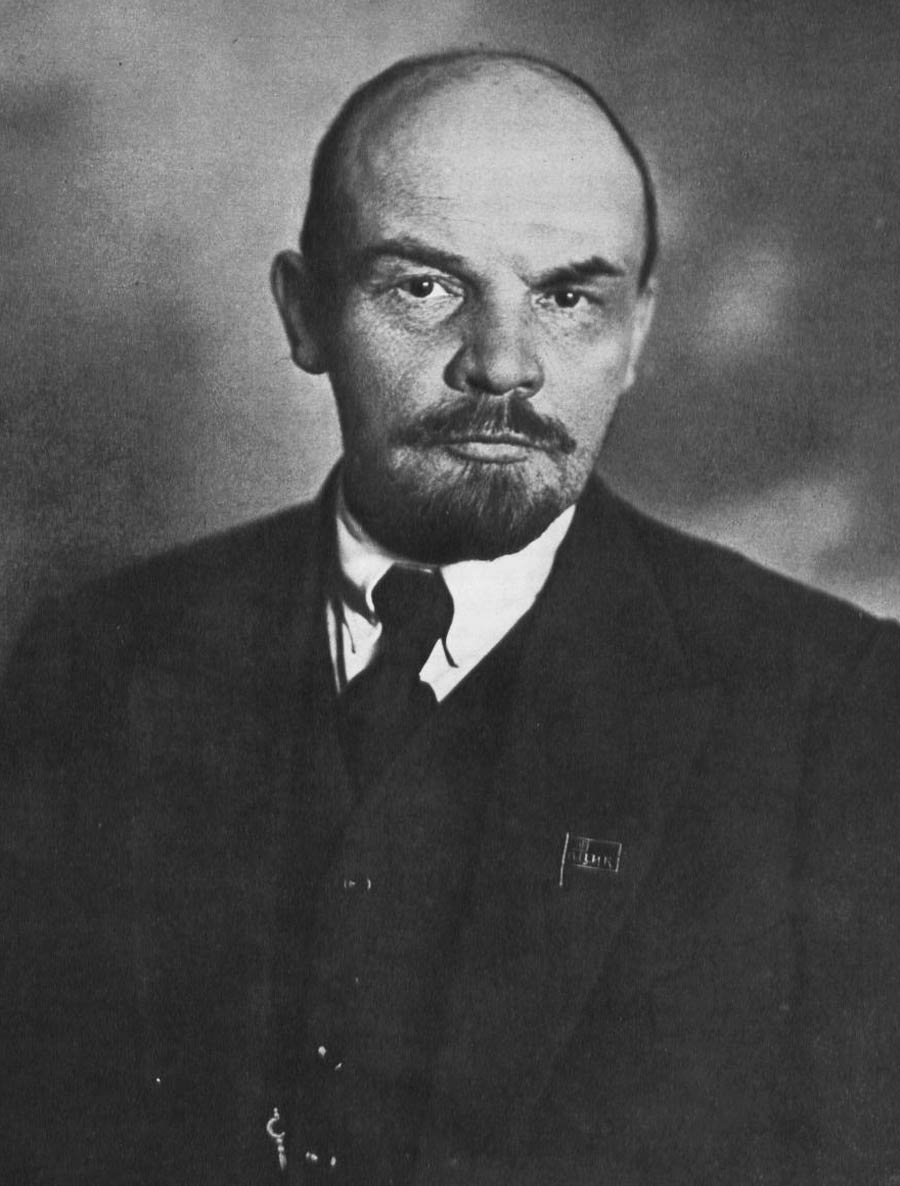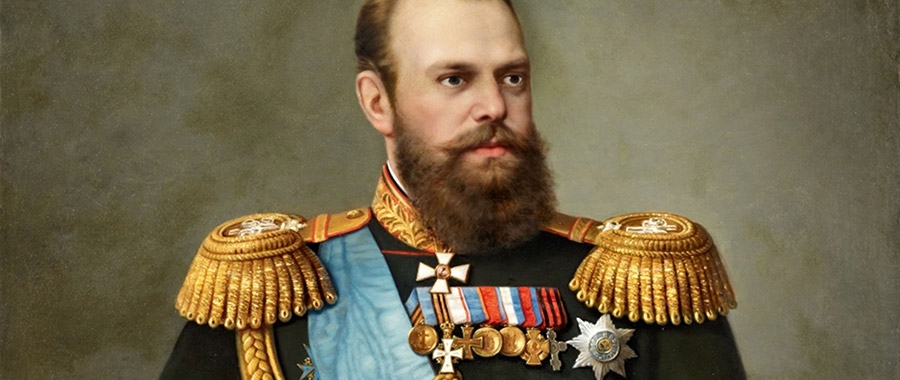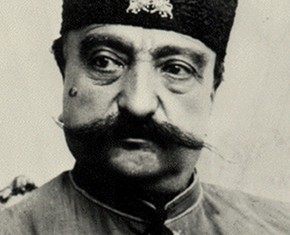The views expressed in our content reflect individual perspectives and do not represent the authoritative views of the Baha'i Faith.
A century ago, Vladimir Lenin led the Bolshevik party he had founded in overthrowing the Provisional Government of Alexander Kerensky.

Vladmir Lenin
The overthrow Lenin struggled for decades to engineer would have far-reaching consequences in the decades after 1917. An avowed atheist, Lenin joined the revolutionary movement in tsarist Russia. Later his revolutionary ardor was intensified when his beloved older brother was hanged for conspiring to assassinate Tsar Alexander III.
Lenin became an avid reader of revolutionary political literature, which included Karl Marx’s Das Kapital, leading to his becoming a Marxist in 1889. While seeking to unify Russian Marxist groups he sought to undermine workers’ veneration of the Tsar, and argued that capitalism was rapidly destroying the peasant commune–a self-governing community of peasant households. Lenin maintained that the proletariat—working-class people—could never grasp that overthrowing capitalism would not build Marxist socialism without a hardened core of revolutionaries governing such a movement.
Lenin was born during the reign of Tsar Nicolaevich Alexander II, who reigned between 1865-1881, and who had been hailed as the “Czar-liberator” for freeing the serfs. In Russia, serfdom was a state of bondage carried over from the Middle Ages, in which bounded persons were obliged to render services to a lord and his land.
Known for liberal views, Alexander II was one of the eight potentates specifically addressed by Baha’u’llah in his remarkable Letters to the Kings and Rulers in the 1860s. To Alexander II and the rulers who in the 19th century wielded absolute civil and ecclesiastical authority, he wrote:
Compose your differences, and reduce your armaments, that the burden of your expenditures may be lightened, and that your minds and hearts may be tranquillized. Heal the dissensions that divide you … We have learned that you are increasing your outlay every year, and are laying the burden thereof on your subjects. This, verily, is more than they can bear, and is a grievous injustice. – Gleanings from the Writings of Baha’u’llah, p. 250.
To Tsar Alexander II specifically, Baha’u’llah said:
We, verily, have heard the thing for which thou didst supplicate thy Lord, whilst secretly communing with Him. Wherefore, the breeze of My loving-kindness wafted forth, and the sea of My mercy surged, and We answered thee in truth. Thy Lord, verily, is the All-Knowing, the All-Wise. – The Summons of the Lord of Hosts, p. 83.
Baha’u’llah told the world’s most powerful rulers that their reigns would come to an end if they did not heed his warnings. Addressing Tsar Nicholas II, he wrote:
O proud ones of the earth! Do ye believe yourselves to be abiding in palaces whilst He Who is the King of Revelation resideth in the most desolate of abodes? Nay, by My life! In tombs do ye dwell, could ye but perceive it. – Ibid., p. 87.
The Tsar’s liberal policies were opposed by nobles who saw themselves losing position and influence. Eventually Alexander II consented to their pressures, and initiated a reactionary policy that resulted in widespread disillusionment, nihilism, unrest and terrorism in his realm—which led to his assassination in 1881.
His son, Alexander III, who reigned from 1881-1894, carried forward a policy of stern repression and defiant hostility to innovators and progressive voices for social change. He believed that Russian orthodoxy, autocracy and nationality would save Russia from revolutionary agitation. Reversing some of the liberal reforms of his father, he determined that his authoritarianism should not be limited.
Alexander III died of nephritis at age 49 in 1894. When his successor Tsar Nicholas II, who reigned between 1894-1917, found himself emperor of Russia, he asked his cousin: “What is going to happen to me and all of Russia?”
Destined to be the last of the Romanov rulers dating from 1613, the 26-year-old Nicholas hurriedly wed his consort Alix (Alexandra), she being the one person who gave him confidence. As Tsar, Nicholas chose to pattern his rule after his late father. His decisive policy of repression and absolutism would contribute to the decline of the Russian Empire from its hegemony as one of the great powers of the world.
Undermined by a corrupt bureaucracy, humiliated by a foreign war with tiny Japan in 1905, blamed for the slaughter of some 1,389 petitioners that same year and ruined by the deaths of over 3,300,000 Russians in the Great War he chose to lead, Nicholas was driven from high office and forced to abdicate his throne early in 1917—a century ago. He and his beloved consort, together with their five children, were kept in strict confinement by the Kerensky Provisional Government until chance favored exiling them abroad. Instead the Bolsheviks led by Lenin seized power in October of 1917, and within a year executed the Tsar and his family.
Blaming the Leninist conspiracy for brutally destroying the first democratic government ever established in Russia, the Universal House of Justice condemned the Russian Revolution of the Bolsheviks:
For long years, the Soviet system created by Vladimir Lenin succeeded in representing itself to many as a benefactor of humankind and the champion of social justice. In the light of historical events, such pretensions were grotesque. The documentation now available provides irrefutable evidence of crimes so enormous and follies so abysmal as to have no parallel in the six thousand years of recorded history. To a degree never before imagined, let alone attempted, the Leninist conspiracy against human nature also sought systematically to extinguish faith in God. … Its longer-term spiritual effect, tragically, was to pervert to the service of its own amoral agenda the legitimate yearnings for freedom and justice of subject peoples throughout the world. – Century of Light, pp. 61-62.
A century after the Russian Revolution, mounting unrest among civilian populations the world over has failed to create a just and equitable system of international governance. Whether complaints are lodged, loyalties are compromised, battles are fought, treaties are recast or national governments are overthrown, peoples everywhere still feel mistrustful, conflicted and un-shepherded. We can only ponder one of the stark lessons of the Revolution in Russia—that the Bolsheviks replaced an indifferent autocracy with a brutal dictatorship, one that was responsible for engineering far worse atrocities than could ever have been imagined under the Tsars. Such a lesson is a reminder that traditional struggles for change may evolve worsening rather than better conditions—but even more importantly, it reminds us that no ruler, no matter how powerful, can ignore the admonitions of a prophet of God. Baha’u’llah gave humanity a path toward positive change when he called upon the rulers of the world to establish unity through justice: “The purpose of justice is the appearance of unity among men.” – Tablets of Baha’u’llah, p. 66.
















Comments
Sign in or create an account
Continue with Googleor